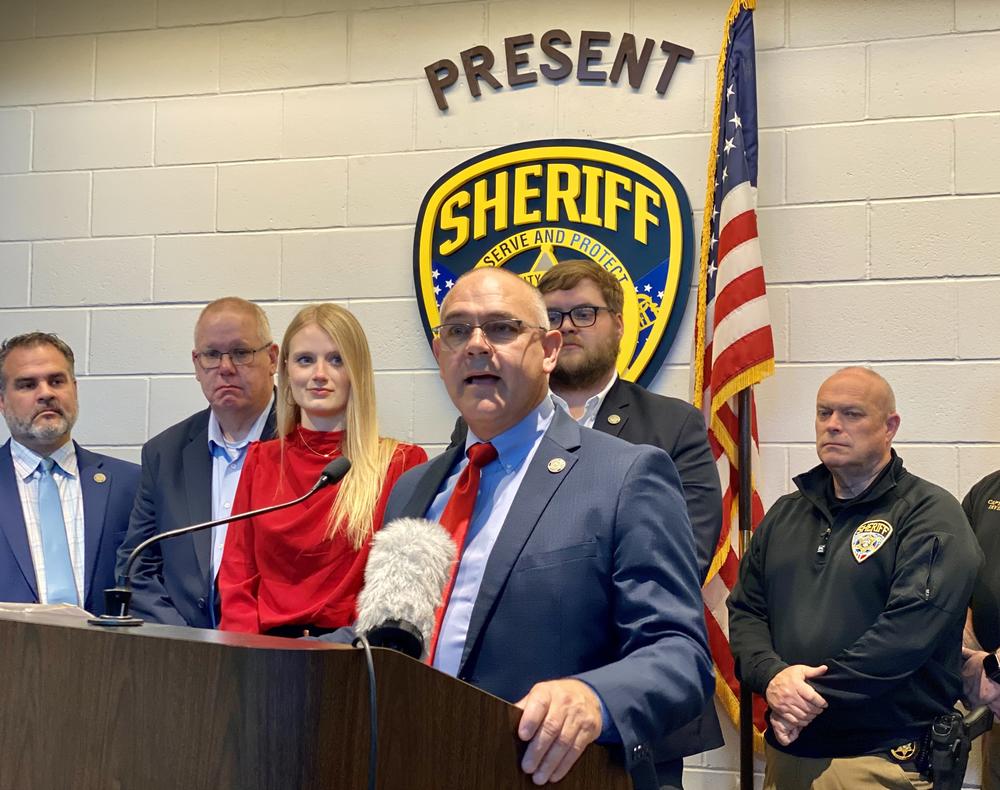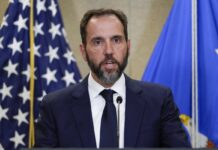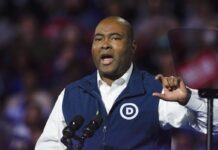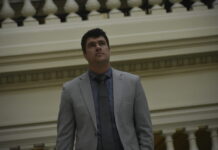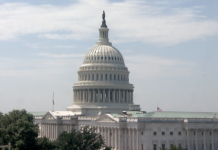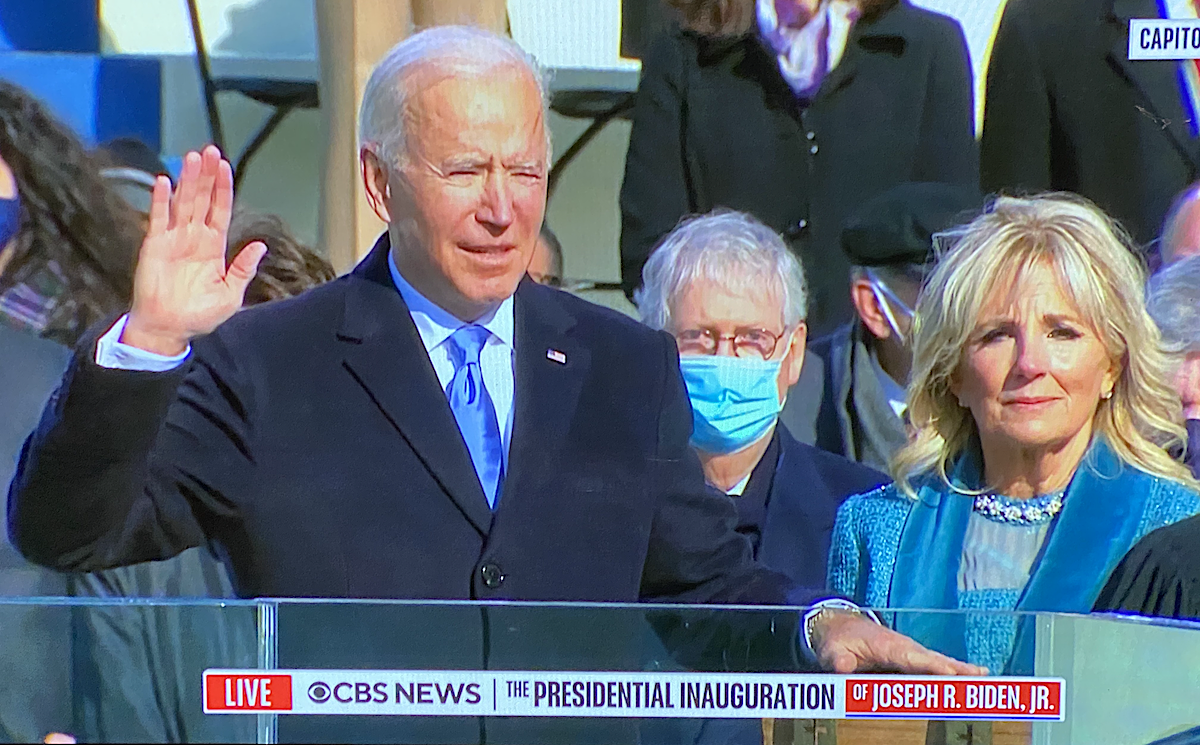
WASHINGTON — Calling on Americans to bridge the widening divisions in the country, Joe Biden became the 46th president of the United States on Wednesday, completing the peaceful transition of presidential power on the same stage where a violent mob just two weeks ago sought to prevent him from taking office.
Standing before an unusually small crowd due to the pandemic and security concerns, Biden pledged to work on behalf of all Americans, not just those who supported him. The Democrat from Delaware said those who did not vote for him can still disagree and dissent, but added: “Disagreement must not lead to disunion.”
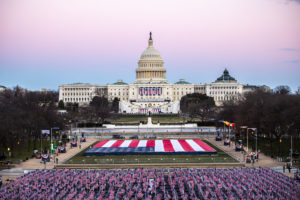
“We must end this uncivil war that pits red against blue, rural versus urban, conservative versus liberal,” Biden said. “We can do this if we open our souls instead of hardening our hearts.”
Moments beforehand, the country witnessed a historic first, when Kamala Harris became the first woman, and first Black and South Asian woman, to serve as vice president. She was sworn in by Justice Sonia Sotomayor, the first Latina on the Supreme Court.
Harris, who stepped down as a U.S. senator from California on Monday, will be the tie-breaking vote in an evenly divided Senate. The addition on Wednesday of two new senators from Georgia and one Californian to replace Harris brings the chamber to 50 Democrats and 50 Republicans.
As he gave his inaugural address, the 78-year-old Biden, a former vice president under Barack Obama and longtime U.S. senator from Delaware, looked out not at a sea of supporters, but at a bleak scene.
Members of Congress were seated in socially distanced chairs; a massive force of National Guard members and huge metal barricades were present, following the Jan. 6 pro-Trump attack on the Capitol; and a display of flags stretched to the Washington Monument representing the more than 400,000 Americans who have died of COVID-19 and could not be there in person.
Pennsylvania Gov. Tom Wolf, a Democrat, told a pool reporter before the ceremony that he was saddened by the massive security presence around him.
“It’s a military camp,” Wolf said, his voice breaking.
U.S. Rep. Brian Fitzpatrick (R-Pa.) said in a phone interview afterward that the event felt “very safe” as a result of both the security measures and the COVID-19 precautions, which required attendees to have a COVID-19 test beforehand.
But, he added, it had a quiet, subdued atmosphere.
“It almost had a feel like you were in someone’s backyard, rather than a presidential inauguration,” Fitzpatrick said.
Asked by a reporter if the mob invasion at the Capitol had made him hesitant to attend the swearing-in, Rep. Dean Phillips (D-Minn.) replied: “If anything, I became more resolute about doing so.”
Vice President Mike Pence was in attendance, but for the first time since 1869, the departing president did not watch as his successor took the oath.
President Donald Trump and his wife, Melania, left the White House hours ahead of Biden’s swearing-in ceremony, with Marine One flying past the Capitol as it ferried him to his flight home to Florida.
Trump, speaking to a small group of supporters before his final ride on Air Force One, thanked supporters and touted his administration’s accomplishments before wishing “the new administration great luck and great success.”
“I hope they don’t raise your taxes, but if they do, I told you so,” Trump said, concluding with a promise that he “will be back in some form.”
As Trump exited Washington, Biden headed to a church service at the Cathedral of St. Matthew the Apostle with top congressional leaders from both political parties. He’s the nation’s second Catholic president, after John F. Kennedy.
The challenge before Biden and Harris is a stark one: healing a country that’s economically strained, rampaged by an unchecked virus, and facing ever-deepening political divisions.
He is expected to immediately embark on his policy agenda, with plans to sign more than a dozen executive orders and other directives Wednesday.
Those orders will require mask-wearing on federal property, and extend pandemic-spurred protections against evictions and foreclosures, and a pause on student loan interest and payments.
Biden also will begin to undo Trump’s immigration actions, reversing his ban on travel from some Muslim-majority countries; halting construction of the border wall; bolstering the Deferred Action for Childhood Arrivals program, and ending the enhanced immigration enforcement under the Trump administration.
The administration has announced its plans to send an immigration reform bill to Congress Thursday that will lay an eight-year path to citizenship for undocumented people.
Biden also will have the U.S. rejoin the World Health Organization and the Paris Climate Accord, and begin reviewing the Trump administration’s rollbacks to environmental regulations.
As a precaution against additional insurrection, more than 25,000 National Guard members are stationed around the Capitol and throughout D.C., a number that grew dramatically following the Jan. 6 attack on the U.S. Capitol by a violent mob of pro-Trump supporters. Lawmakers, staffers and journalists had to barricade themselves for hours until law enforcement officers were able to secure the building.
Even after that horrifying event, Biden and his transition team said they felt secure in continuing to hold the swearing-in ceremony outside on the West Front of the Capitol, its traditional location.
Other than the masks obscuring the faces in the audience, much of the ceremony itself felt normal. Former presidents Obama, Bill Clinton and George W. Bush were there to mark the occasion, and musical icons Lady Gaga, Jennifer Lopez, and Garth Brooks performed.
The youngest inaugural poet, 22-year-old Amanda Gorman, echoed Biden’s own themes in describing “a nation that isn’t broken but simply unfinished.”
Rep. Haley Stevens (D-Mich.) said to reporters that she felt Biden’s speech about unity, along with Gorman’s poem about resilience and equity, were important for Americans to hear.
“I’m full of joy and inspiration,” she said, according to pool reports. “I’m excited to be working with this next administration and honored to be here on behalf of Michigan.”
Sen. Roy Blunt, (R-Mo.), who as chairman of the Joint Congressional Committee on Inaugural Ceremonies was emcee during the ceremony, said the attack on the Capitol “reminds us that a government designed to balance and check itself is both fragile and resilient.”
“This is not a moment of division, it’s a moment of unification,” Blunt said. “A new administration begins and brings with it a new beginning. And with that, our great national debate goes forward.”
Sen. Susan Collins (R-Maine) told reporters afterward that Biden’s speech “struck the right themes, in my view, of unity, a call for us to come together, to stop viewing one another as adversaries, but rather as fellow Americans.”
Collins added that she and other senators have long-standing relationships with Biden, and that she’s “ready to work with him to advance common goals.”
Georgia U.S. Rep. Austin Scott, a Tifton Republican, offered a hopeful message in a statement Wednesday.
“President Biden has vowed to work for all Americans, and if he holds to that promise, America will prosper,” Scott said. “More unites us than divides us as Americans, and I will continue to fight for policies that make our state and country a better place for everyone.”
Hours after Biden’s inauguration he got to work signing executive orders, including one to rejoin the Paris Climate Agreement that Trump had abandoned. New Georgia Rep. Carolyn Bourdeaux, a Suwanee Democrat, tweeted her approval.
America is once again part of the global commitment to combating climate change with the urgency and seriousness it deserves. Glad to see @POTUS rejoin the Paris Climate Agreement on Day One of his presidency. https://t.co/kEJqDZ4gzK
— Rep. Carolyn Bourdeaux (@RepBourdeaux) January 20, 2021


